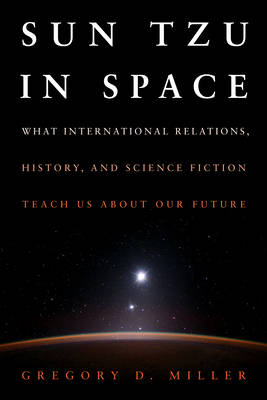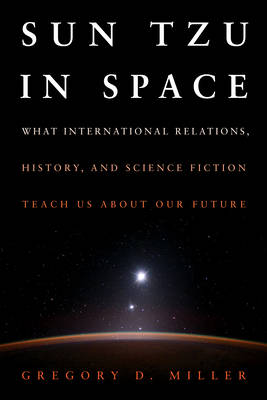
- Afhalen na 1 uur in een winkel met voorraad
- Gratis thuislevering in België vanaf € 30
- Ruim aanbod met 7 miljoen producten
- Afhalen na 1 uur in een winkel met voorraad
- Gratis thuislevering in België vanaf € 30
- Ruim aanbod met 7 miljoen producten
Zoeken
Sun Tzu in Space
What International Relations, History, and Science Fiction Teach Us about Our Future
Gregory D Miller
Hardcover | Engels
€ 37,45
+ 74 punten
Omschrijving
Sun Tzu in Space provides a novel way of thinking about the future, connecting international relations, history, and science fiction to better understand some of the various paths for future human activities in space. Simultaneously, it provides a way to use science fiction to help students and the public learn about international relations and the cyclical nature of history. Author Gregory D. Miller uses case studies, history, and foundational international relations concepts to draw big, or at least possible, conclusions about humanity's future in space. By combining the lessons of science fiction, and the facts of the past, Miller presents possible outcomes with a goal of illuminating where things could go wrong, or wonderfully right, as humans venture forth into space in greater numbers in the in the decades to come.
Specificaties
Betrokkenen
- Auteur(s):
- Uitgeverij:
Inhoud
- Aantal bladzijden:
- 376
- Taal:
- Engels
Eigenschappen
- Productcode (EAN):
- 9781682478455
- Verschijningsdatum:
- 15/04/2023
- Uitvoering:
- Hardcover
- Formaat:
- Genaaid
- Afmetingen:
- 150 mm x 234 mm
- Gewicht:
- 680 g

Alleen bij Standaard Boekhandel
+ 74 punten op je klantenkaart van Standaard Boekhandel
Beoordelingen
We publiceren alleen reviews die voldoen aan de voorwaarden voor reviews. Bekijk onze voorwaarden voor reviews.











